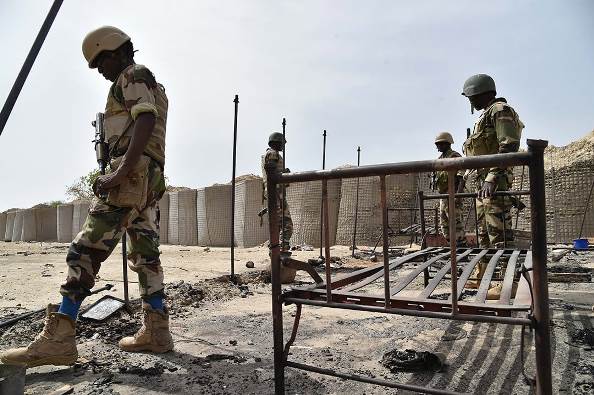By Major (Rtd.) Yinka Ogunsanya
Defense and Insurgency Expert | U.S. Army Veteran with Operational Experience in Afghanistan, Iraq, and Southeast Asia
When my vehicle was struck by an improvised explosive device (IED) during my final tour in Afghanistan, I walked away largely unharmed. But as the dust settled, one haunting thought filled my heart — what if this had been my homeland, Nigeria? That single question shook me more deeply than the explosion itself. I had seen firsthand what insurgency and extremism could do to nations that failed to act decisively.
Now, years later, we are coming full circle. Brother Dona and his followers openly threaten to unleash terror on Nigerian soil. Most Nigerians have never witnessed the devastating power of modern weapons — but I have. There is nothing noble, clean, or surgical about today’s warfare. The myth of “precision munitions” is comforting but false. Not all American weapons are precision-guided; many come from old stockpiles that must be expended. I’ve seen the aftermath of those so-called “proximity kills” — the shattered homes, the wounded civilians, the poisoned soil.
The human cost of modern warfare is staggering. In the post-9/11 wars across Iraq and Afghanistan, civilian deaths alone number in the hundreds of thousands.
According to the Costs of War Project at Brown University, over 940,000 people have died from direct violence across U.S. war zones since 2001 — including more than 432,000 civilians. In Iraq alone, an estimated 184,000 to 207,000 civilians were killed directly by war-related violence. In Afghanistan, the figure stands at over 70,000 civilian deaths, with total deaths exceeding 243,000 when combatants are included. Indirect war-related deaths — from destroyed infrastructure, disease, and displacement — bring the total toll to between 4.5 and 4.7 million lives lost.
When nations descend into chaos
These are not just statistics; they are a grim testimony to what happens when nations descend into chaos. If such weapons were ever to be used in Nigeria — an overpopulated nation with fragile infrastructure and weak public health systems — the consequences would be catastrophic.
Consider the case of depleted uranium (DU) munitions. Used extensively in Iraq, these weapons remain active in the environment long after the fighting ends. The radioactive dust they leave behind contaminates soil, water, and air — causing long-term respiratory illnesses, kidney damage, birth defects, and cancers. I have walked through villages in Iraq where children play near burnt-out vehicles laced with uranium residue, and hospitals where doctors struggle to explain the alarming surge in leukemia and congenital deformities years after the war ended.
Now imagine that happening in Maiduguri, Kano, or Kaduna — cities already burdened by overpopulation, poverty, and displacement. A single misstep in how Nigeria confronts insurgency could expose millions to environmental and health crises that would last generations. We cannot afford to import the same mistakes that turned parts of the Middle East into wastelands.
Nigeria must draw a hard and uncompromising line
This is why Nigeria must draw a hard and uncompromising line. We cannot afford to negotiate with terrorists, absorb them into our security forces, or allow our northern borders to remain open conduits for weapons and fighters. Weakness invites aggression, and appeasement only feeds the monster. Our national security doctrine must rest on three non-negotiables: no negotiations with terrorists, no assimilation of insurgents into our ranks, and no hesitation in defending our borders.
If we allow our country to fall into chaos, it won’t just be the gunfire that destroys us — it will be the poisoned soil beneath our feet, the contaminated water in our wells, and the silent legacy of a war we refused to confront when it was still containable.
Nigeria must not fall apart.
⸻
© 2025 Major (Rtd.) Yinka Ogunsanya
Defense and Insurgency Expert | U.S. Army Veteran with Operational Experience in Afghanistan, Iraq, and Southeast Asia.
[email protected]



















